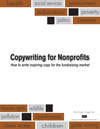There’s an art and a science to conducting a successful interview. And the first step to an interview that yields a compelling story is to prepare for it.
Why is thorough preparation so important?
The odds are that you’ve got one chance to interview the person. This is because the interviewee’s time is also valuable and they’re seldom responsive to call after call to collect all the information. And they don’t want to talk with someone who isn’t already informed about the subject. So to maximize the content mined from the interview you and the interviewee must be ready.
How to Prepare for an Interview
The five steps to get ready for an interview are:
1 – Understand the subject matter
Even if you’re employed by the nonprofit, that doesn’t mean you are the subject matter expert on every program. Nor does it mean you know enough about every situation out in the field where the mission work is taking place.
Study the history. Research other stories published on your topic. Read press releases and info on the website; and talk to those most knowledgeable within your office.
2 – Determine the objective
How is this information going to be used? What’s the objective of the story? What’s the main message you want to share? Who’s the target audience for this story?
Is it to introduce a new program for your nonprofit? Will it be part of a fundraising appeal (online or direct mail)? Will it be used to encourage more people to volunteer? Or something else?
Spell out the answers because they are critical to framing good interview questions.
3 – Write the questions
You know the subject. And you know how the story will be used. Now type out the questions for the information you still need from the interviewee.
Write open-ended questions that can’t be answered with a simple “yes” or “no.” Examples of framing open-ended questions are:
“Can you describe…?”
“How has … made a difference in your life?”
“Tell me about …”
“In what ways has that changed …?”
I strongly recommend you send the interviewee the questions in advance. This puts them more at ease and always results in a better interview.
4 – Select the best candidates to interview
If your charity has overseas missionaries living and working side-by-side with the poor . . . then this is who you want to interview. Not the program director located in New York or somewhere else.
Interview people closest to the “front line” whenever possible. Sometimes the only way is via email, but done well you can still get an inspiring story. And regardless of how skilled you are as an interviewer, occasionally you’ll encounter someone who just doesn’t respond. So be ready with a second candidate.
5 – Arrange the logistics carefully
Anyone need to give permission? Need approvals for any aspect of this process? For example: If you’re interviewing a donor, get permission to publish the interview. And they’ll want to see it before you publish it.
If you’re the person conducting the interview, record it! You can’t possibly give 100% of your concentration on the interviewee if you’re scrambling to make notes while they talk. And you won’t get the quotes right, either. If you’re located in the U.S. you must get the interviewee’s permission to record it (even if they’re not in the U.S.).
Confirm and double confirm the date and time for the interview; who is calling whom; and how long it will last. And specify what time zone you’re referring to when you schedule the time for the interview.
Dedicate plenty of time, effort and resources to preparing for the interview. Do this very well and you’ll get great stories to bolster your nonprofit’s success.
You can’t rush this phase of the process any more than you can rush how long it takes to bake a scrumptious cake. If you want it to turn out right, it can’t be rushed. One more thing: This resource on Donor Interviews has proven invaluable for other fundraising professionals, perhaps it will help you too.

{ 2 trackbacks }
{ 0 comments… add one now }